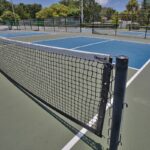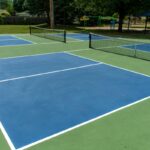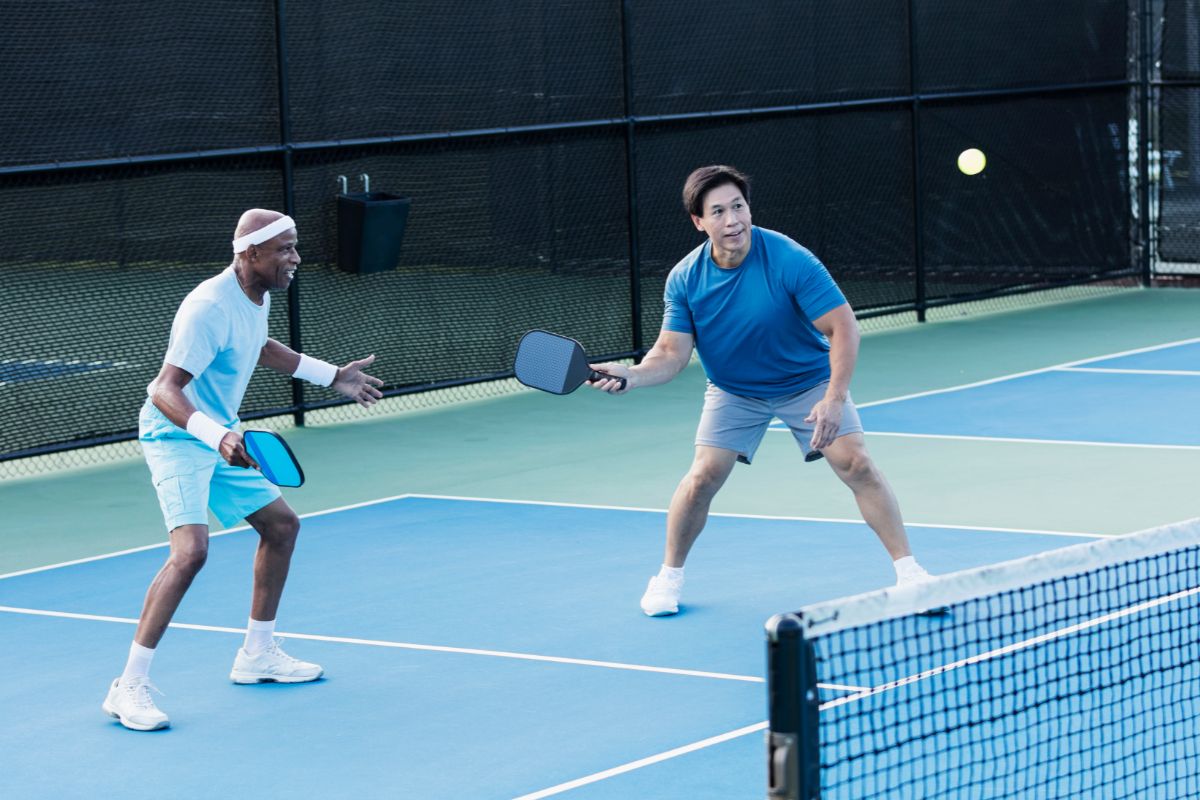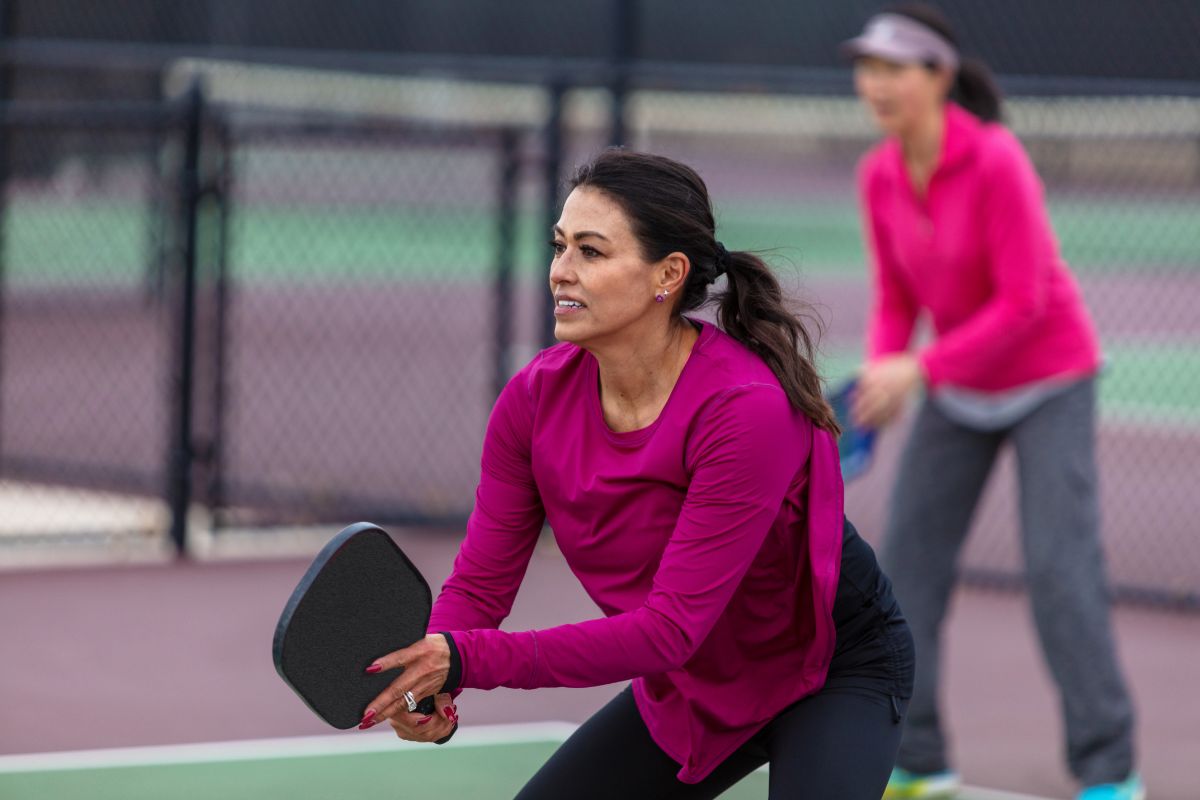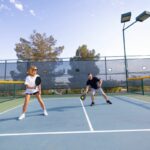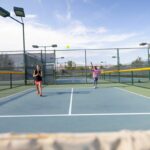Sandbagging is not only a term commonly used in pickleball, and especially in its tournaments, but it is actually a frequently used phrase in many sports and games including golf, tennis, and even chess.
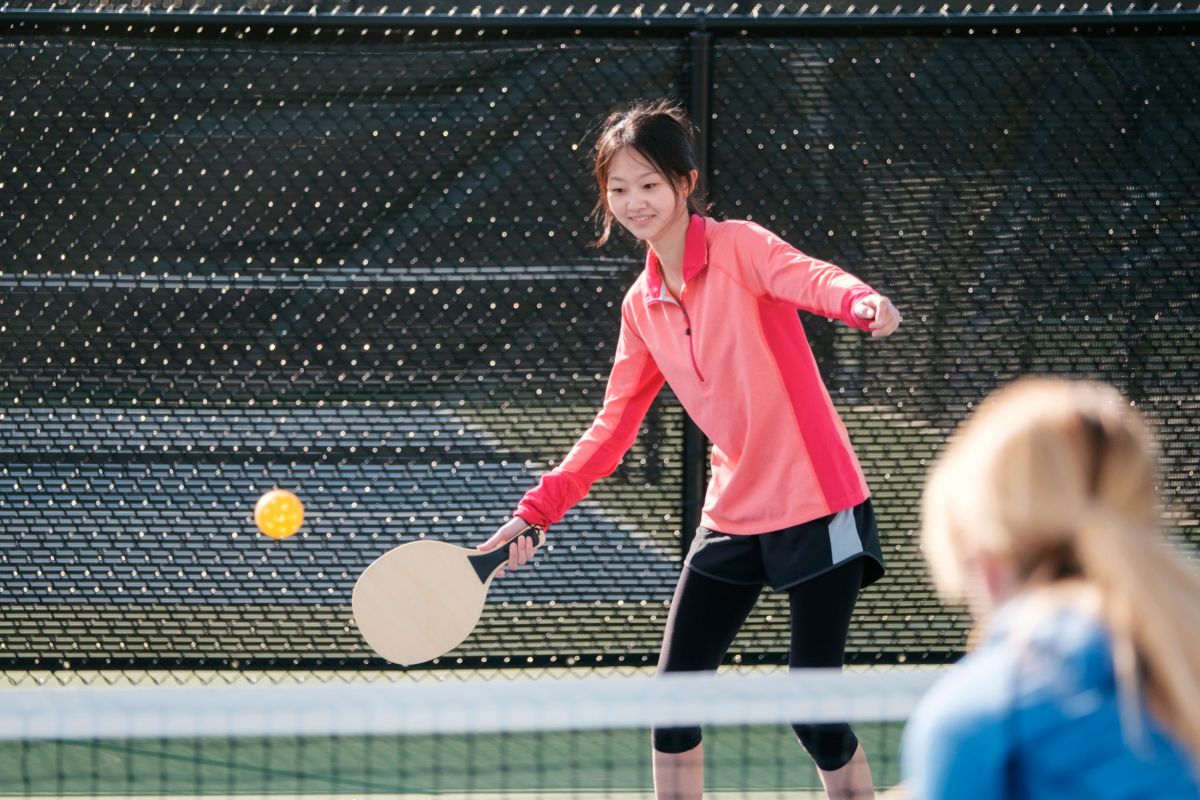
It is a common issue that many say ruins the competitive fairness of pickleball, and while it is unfortunately seen quite a lot in professional tournaments, more measures and policies are being introduced each year to try and counter this unethical practice.
While many experienced players are aware of its existence, not every pickleball player knows exactly how sandbagging works, which is why we have provided you with the full breakdown so you can be aware of what it is, and how it affects the game.
The Meaning Of Sandbagging
Sandbagging is when a player gives the impression that they are of a lower skill level than they actually are, usually in order to win an award or a medal much easier.
Players who sandbag can make it seem like they are low-skilled at pickleball by missing balls more than they should, or even losing entire games on purpose.
How Common Is Sandbagging In Pickleball?
As with any sport where players can move up and down skill brackets, sandbagging is definitely an issue that exists in many pickleball tournaments.
It is usually more frequent in nationals because at smaller local tournaments there tends to be more control over ranking the players which can make it slightly harder for players to sandbag.
Because of the way the skill levels work in pickleball, this does unfortunately mean that many players can sometimes purposely drop down a level in order to have easier matches.
For example, if you and your partner are 3.0 players and you come up against a pair who seem far too good for your level and who move up to 4.0 or 4.5 in the next few days, these could be players who are sandbagging.
This isn’t to say that all players who are good in their skill level sandbag, in fact, sandbagging is far less prevalent in pickleball than it is in other games such as chess where players can win bigger prizes by being in a lower bracket than they should be.
It should also be noted that many tournament directors will have the job of rating hundreds, and sometimes even thousands of players each and every year to put them in the right skill bracket, which means not every player is going to be on the level that they should be, however this is usually resolved after a few games.
Why Sandbagging Is So Unethical In Pickleball?
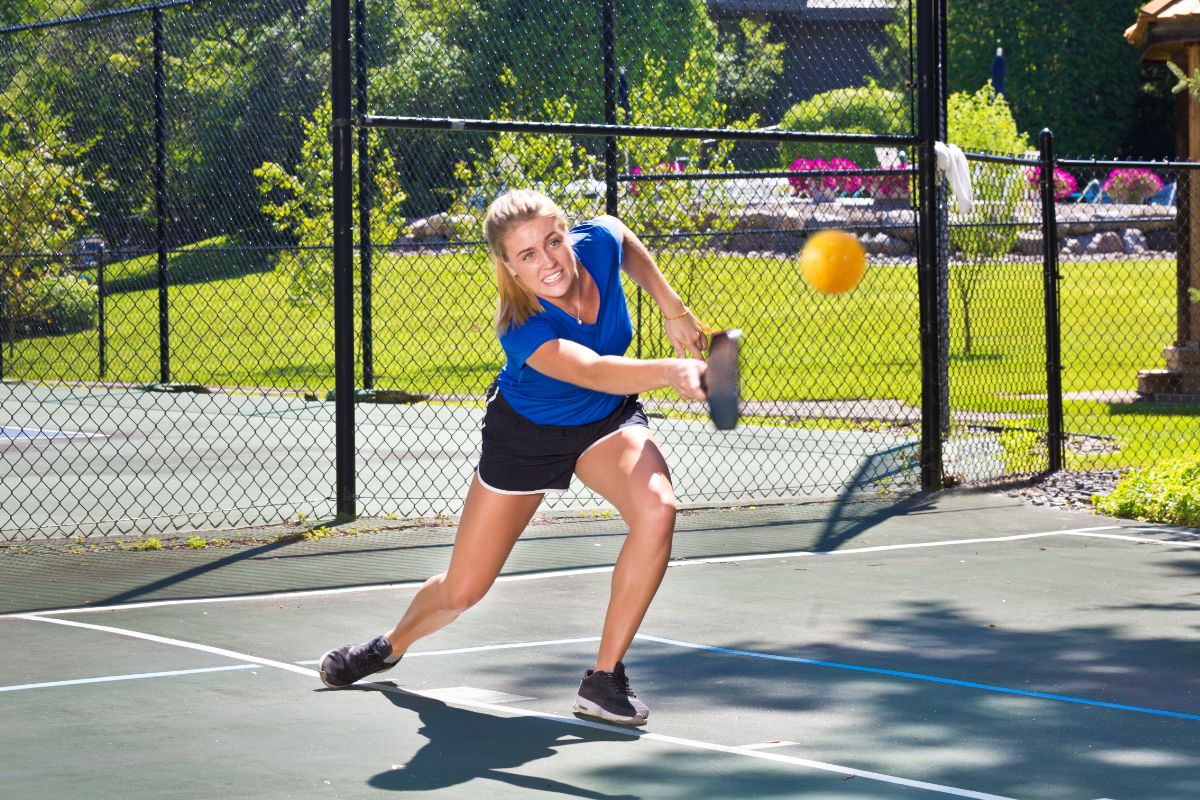
The smallest features of a pickleball player can determine their skill level through the sport’s incredibly thorough and detailed bracket system.
For example, players with a 3.0 skill rating are usually those who struggle with the backhand and who find it hard to sustain a dink rally, but who can also hit medium-paced forehand shots.
Players just above in 4.0 can hit constant accurate forehands while also having a consistent and fairly accurate backhand and the ability to volley.
These small differences are separated so that each player can face someone who won’t be using techniques they are not familiar with, keeping each game fair in a sport where one move or technique can make all the difference.
You can therefore see how a player could easily drop down a level on purpose and start using techniques that their opponents aren’t expecting to see, and can’t even effectively use themselves.
Because of how thin these skill margins are, it therefore means that sandbagging majorly ruins the fair and competitive nature that the sport is so well known for.
Sandbagging is also a major problem because it can turn players away from pickleball, whether it’s a beginner who is worried they will come against a sandbagger in a tournament, or a player who is unjustly being ridiculed for playing too well, it is an unfair practice that is slowly but surely being driven out of pickleball.
How Sandbagging Is Being Prevented In Pickleball?
While sandbagging does always have a chance of happening at any pickleball tournament you play at, most people usually don’t get away with it after attempting it for one or two tournaments, and a lot of the time, they can even get exposed during a single tournament.
The biggest way the pickleball governing bodies are tackling this issue is through the UTPR, a system that calculates a player’s performance and score over the course of several tournaments they have already competed in.
This calculation is much more accurate than self-ratings which are more subjective, or ratings given by tournament directors who will be required to judge the skill of each and every player which can easily lead to mistakes.
Why Would A Pickleball Player Sandbag?
The main reason players will sandbag is to win a medal at a specific skill bracket. After this, many of these players will leave and find another tournament they can sandbag at so that they avoid any suspicion if they returned to the current one.
If a player is clearly superior in skill level to their opponents and is achieving constant wins with ease, because sandbagging is so well known in pickleball, many players will quickly assume the player is sandbagging, meaning suspicion can rise incredibly easily.
The other reason simply comes down to ego, and when a person wants to feel some sort of superiority over their opponent and to feel good about themselves, despite the fact that they have cheated and played an unfair game.
Can Players Sandbag Unintentionally?
Because the skill requirements for reaching every bracket are detailed but slightly vague in their descriptions, it does mean that many players can feel like they might fit into one skill bracket which might be too high, or in some cases, too low which can lead other players to accuse them of sandbagging.
For example, the word “consistent” is used to determine whether a player fits into a specific category depending on if they can consistently hit a shot, however, players have different ideas of what this term even means.
For one person, “consistent” can mean hitting 5/10 backhands in a match, while for someone else, it would mean hitting 9/10, which can easily cause players to place themselves in the wrong bracket.
If you feel that you may have unintentionally placed yourself in a lower bracket, it is always worth talking to the tournament director and explaining the situation, they would much rather you do this than keep playing against players who are under your own skill level.
Summary
Sandbagging is an incredibly unethical practice that is unfortunately present in tournaments across many different sports and games, including pickleball, and while measures are being implemented to remove this issue and drive it away from the sport for good, this will still take some time.
This form of cheating stains the fair and competitive nature of pickleball that the sport is so well respected for, so to ensure every player has an equal opportunity to grow their skill levels, and so that new players are not afraid to get involved in tournaments themselves, each and every player is encouraged to only play and compete at their appropriate skill level.
- What Kind Of Ball Is Used In Pickleball? - July 13, 2023
- How Much Does It Cost To Build A Pickleball Court? - July 11, 2023
- When Do New Pickleball Rules Take Effect? - July 8, 2023

